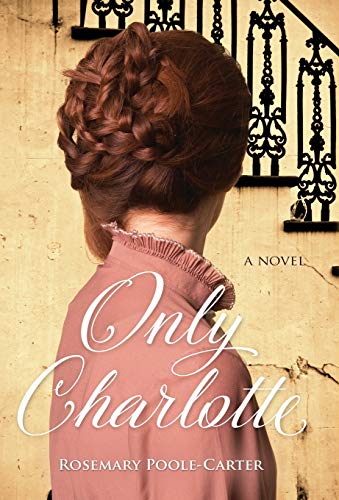Only Charlotte
In Kate Chopin’s short narrative, “The Story of an Hour,” she referred to marriage as the “joy that kills.” Rosemary Poole-Carter expands on that theme in her Shakespearean-inspired tale Only Charlotte. Set in New Orleans ten years after The War of Northern Aggression, Poole-Carter depicts a “city built on the sediment of old vices.” Through the eyes of a young pediatrician, Dr. Gilbert Crew, Carter introduces three couples: the Edens, the Duvalls, and Judge Placide and his much younger wife, Helene. Each is hopelessly entangled in the affairs of the others.
Dr. Crew, recently widowed and a new resident in New Orleans, lives with his wealthy widowed sister, Lenore, and her servant, Ella. From his sister Lenore’s home he runs a small clinic. He also volunteers at a women’s shelter and makes house calls to both rich and poor clients. Through his work, he meets Charlotte Eden, the young mother of two small children, and he finds himself hopelessly drawn to her.
When his charitable work takes him to the sprawling, gothic plantation of Judge Placide, he encounters for the first time Charlotte’s husband, Victor, the Duvalls, and the Placides. The judge inadvertently compels Dr. Crew to play a role in a sinister plot designed to destroy the marriage of one of those couples. With the help of Lenore and Ella, Dr. Crew struggles to unravel a conspiracy built on greed, privilege, and violence.
There are moments in the novel that feel a little like the board game Clue, and Lenore’s frequent reflections on The Winter’s Tale become both tedious and awkward at times. Despite these distractions, Carter has an uncanny ability to bring to light the suffering of women and children in a society that views them as property. As the author explores the intersectionality of race, privilege, and gender in the American South, she reminds the reader that Americans live in a country “built on the sediment of old vices.”










